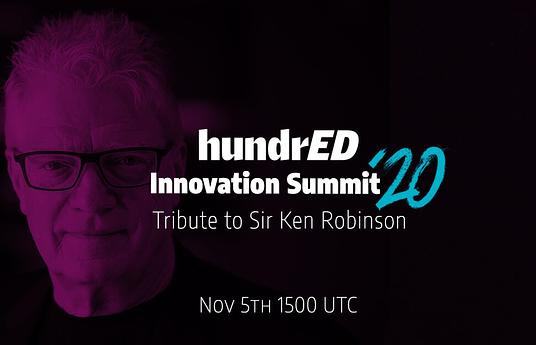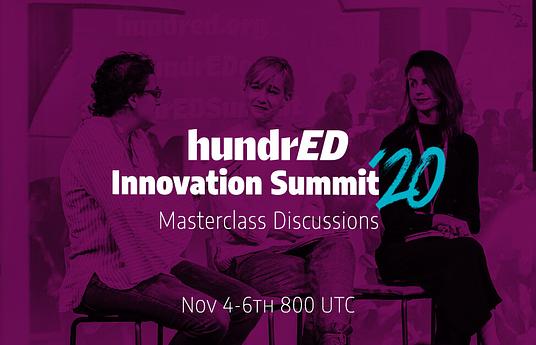We have just a few days left before the HundrED 2020 Innovation Summit! Join us next Wednesday, November 4th at 1300 UTC to hear from innovators and education leaders from around the world, and explore 50+ breakout sessions!
It is not too late to register for the HundrED Innovation Summit happening November 4-6th, so if you haven't yet you can do so now and be sure to share the event within your network! The Summit can be viewed on your phone or browser both live and on-demand.
This article will give you a better idea of what to expect during the Education 2030 Showcase on November 6th at 1300 UTC (convert to your time zone).
Education 2030: How do we Help Every Child to Flourish?
The task of preparing today’s learners for the complexities and uncertainties that arise from the changing world can be daunting. Many of the jobs that await today’s young people will likely require work that has yet to be invented. Moreover, the problems that communities face — from hunger to environmental destruction to profound inequity — will not be solved by content knowledge alone.
In a fast-changing world, focusing on traditional academic skills will remain important, but that is no longer enough. In order to thrive as global citizens, children must be equipped with a breadth of skills. While we are advocates of child-centric approaches and personalized, passion-based learning, the relationship between an inspired teacher and a motivated student will remain essential.
Educational assessment needs to be aligned with the core purpose of helping kids flourish, and all of this should be reflected in the learning environment of the future. To make this happen, we need visionary leadership at every level of our education system and ambitious education innovations. We need innovative, impactful, and scalable approaches that are also effective in low-resourced environments.
In this showcase, we will unpack what we want education to look like in the year 2030 and how we are going to get there. What better way to start than by giving young people the stage? Alice Machado, a HundrED Youth Ambassador from Brazil, and Dustin Liu, US Youth Observer for the United Nations will open this discussion by interview Andreas Schleicher, Director for Education and Skills at the OECD. They have collected questions from young people around the world and will use this opportunity not just to ask Andreas his predictions for the future but also to also share their hopes and dreams for the future of education.
Next, Aline Sara, Co-Founder & CEO of NaTakallam, Stephen Ritz, Founder of Green Bronx Machine and Giulia D'Amico, CEO and Leslee Udwin of Founder & Chair of Think EQUAL will join us live to share their experience of 2020 and what they believe is the answer to provide holistic, equitable education to young people across a variety of contexts and resource allocations.
We will then move into a panel discussion, hosted by Vikas Pota, Chairman, World Education Week, where you will get an opportunity to engage with:
- Shaheen Mistri, CEO, Teach for India, Kids Education Revolution
- Kim Karr, Executive Director & Co-Founder, #ICANHELP
- Alison Bellwood, Creator & Director, World’s Largest Lesson
- Gregg Behr, Executive Director, Grable Foundation
The closing remarks will be provided by Mercedes Mateo, the lead education specialist at the Inter-American Development Bank. She leads and contributes to the research, design, and execution of innovative education projects in Latin America and the Caribbean. She was a postdoctoral research fellow of the Belgian Scientific Research Foundation (FNRS) in 2004 and an honorary researcher at FNRS until 2007. In 2004, she was a Marie Curie Fellow at the Robert Schumann Center at the European University Institute. An expert on institutional reform and social policy, she has co-authored Cashing in on Education: Women, Childcare, and Prosperity in Latin America and the Caribbean, authored Representing Women? Female Legislators in West European Parliaments (2005) and coedited Democracies in Development: Politics and Reform in Latin America (2006). She holds a Ph.D. in political science from the University of Louvain.


